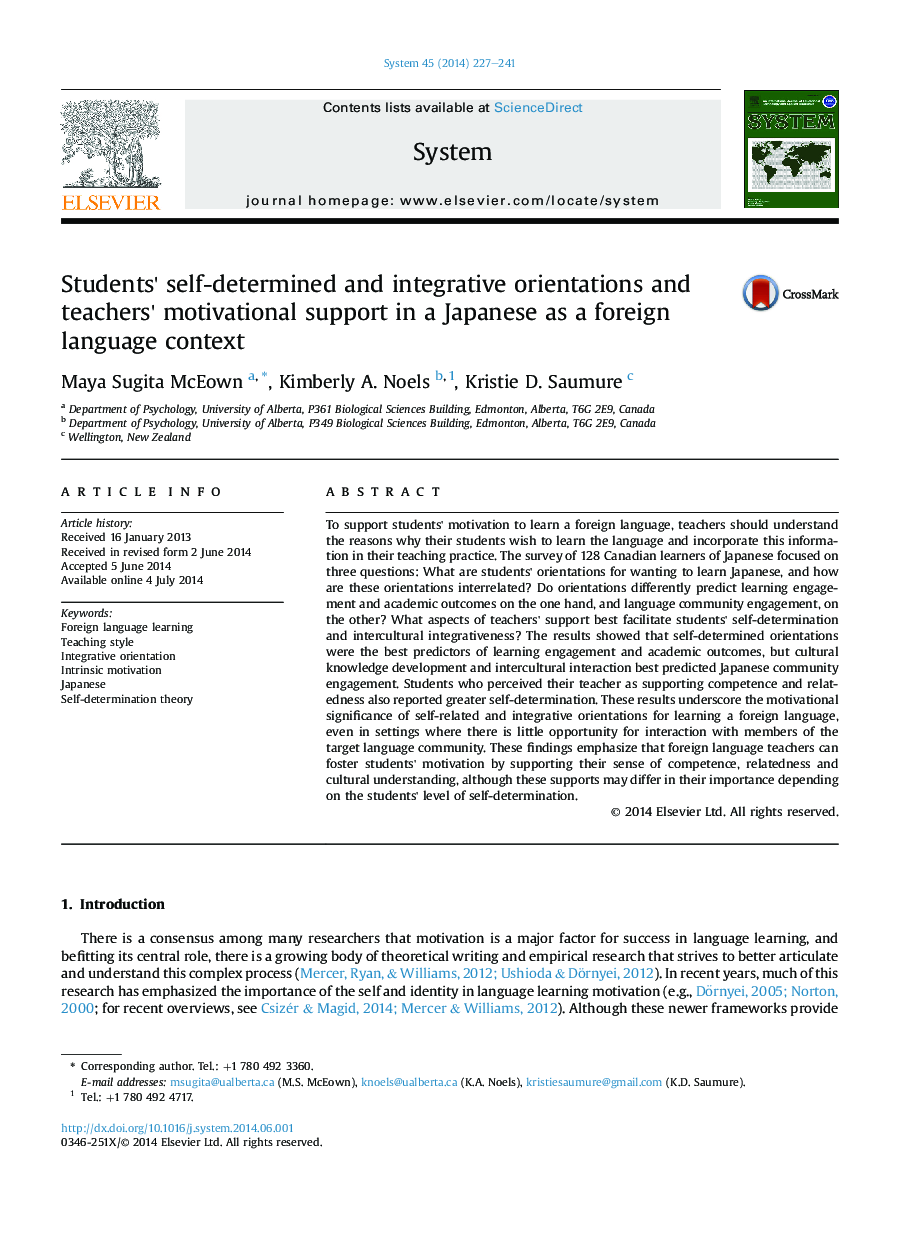| کد مقاله | کد نشریه | سال انتشار | مقاله انگلیسی | نسخه تمام متن |
|---|---|---|---|---|
| 373346 | 622299 | 2014 | 15 صفحه PDF | دانلود رایگان |
To support students' motivation to learn a foreign language, teachers should understand the reasons why their students wish to learn the language and incorporate this information in their teaching practice. The survey of 128 Canadian learners of Japanese focused on three questions: What are students' orientations for wanting to learn Japanese, and how are these orientations interrelated? Do orientations differently predict learning engagement and academic outcomes on the one hand, and language community engagement, on the other? What aspects of teachers' support best facilitate students' self-determination and intercultural integrativeness? The results showed that self-determined orientations were the best predictors of learning engagement and academic outcomes, but cultural knowledge development and intercultural interaction best predicted Japanese community engagement. Students who perceived their teacher as supporting competence and relatedness also reported greater self-determination. These results underscore the motivational significance of self-related and integrative orientations for learning a foreign language, even in settings where there is little opportunity for interaction with members of the target language community. These findings emphasize that foreign language teachers can foster students' motivation by supporting their sense of competence, relatedness and cultural understanding, although these supports may differ in their importance depending on the students' level of self-determination.
Journal: System - Volume 45, August 2014, Pages 227–241
